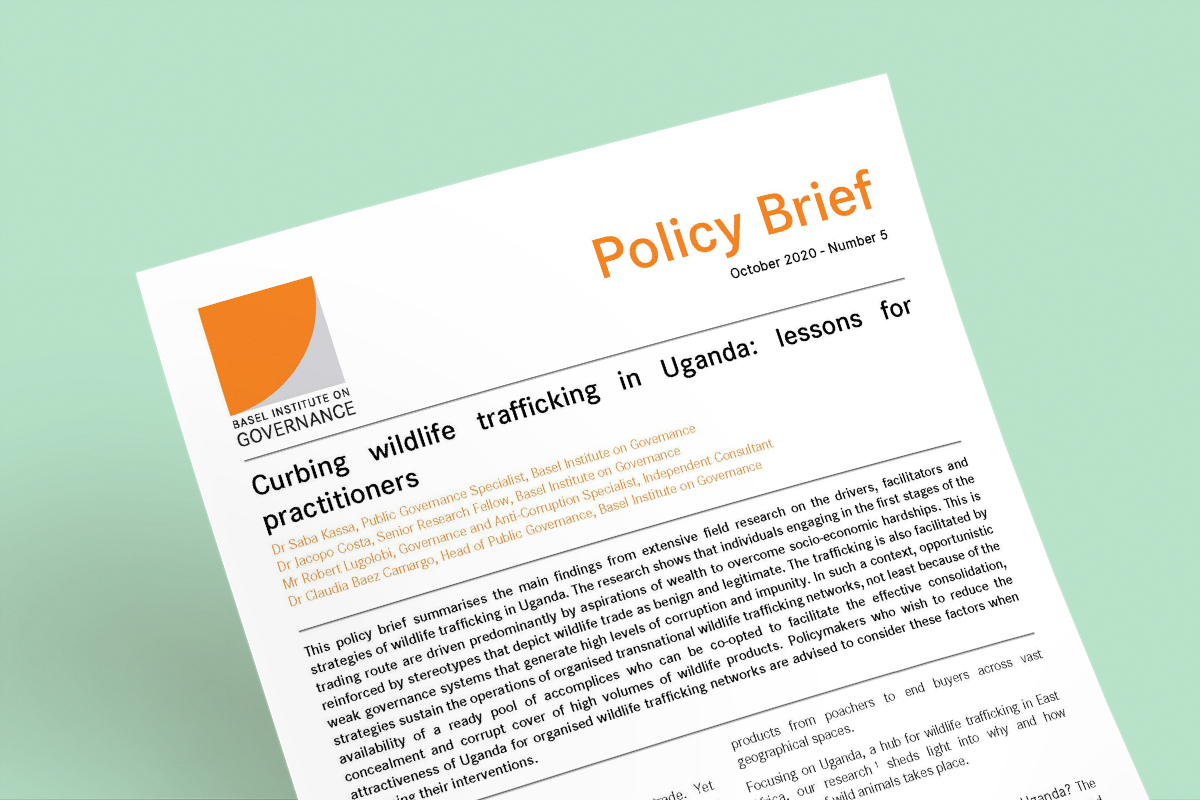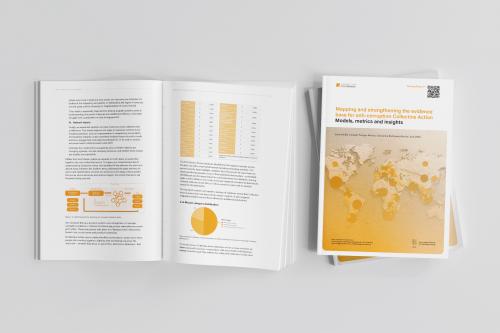New policy brief: Curbing wildlife trafficking in Uganda – lessons for practitioners

A new policy brief published as part of our Institute-wide Green Corruption programme offers a fresh perspective for practitioners and policymakers seeking to curb wildlife trafficking in Uganda. It emphasises context-sensitive interventions that are based on understanding the behaviours of individuals and social networks.
The policy brief summarises the main findings from extensive field research on the drivers, facilitators and strategies of wildlife trafficking in Uganda, conducted by our Public Governance team and local research partner under an ongoing project funded by PMI Impact. It translates the insights described in the recently published Working Paper 33: A worm’s-eye view of wildlife trafficking in Uganda into a clear set of recommendations for practitioners and policymakers.
In brief: the research shows that individuals engaging in the first stages of the trading route are driven predominantly by aspirations of wealth to overcome socio-economic hardships. This is reinforced by stereotypes that depict wildlife trade as benign and legitimate.
The trafficking is also facilitated by weak governance systems that generate high levels of corruption and impunity. In such a context, opportunistic strategies sustain the operations of organised transnational wildlife trafficking networks, not least because of the availability of a ready pool of accomplices who can be co-opted to facilitate the effective consolidation, concealment and corrupt cover of high volumes of wildlife products.
Policymakers who wish to reduce the attractiveness of Uganda for organised wildlife trafficking networks are advised to consider these factors when designing their interventions.
View Policy Brief 5: Curbing wildlife trafficking in Uganda: lessons for practitioners.



